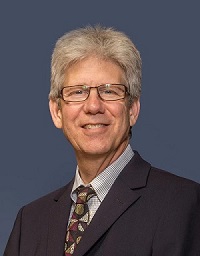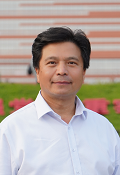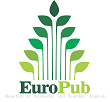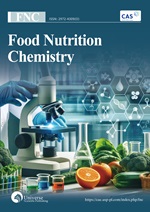IFCEST Plenary Talk: Prof. Marc A. Rosen, Fellow of the Royal Society of Canada

Plenary Speaker:
Faculty of Engineering and Applied Science, Ontario Tech University
Oshawa, Ontario, Canada
Title:
Exergy Analysis for Efficiency Improvement and Environmental Impact Mitigation
Abstract:
The use of exergy analysis is described in the context of its applicability and usefulness for efficiency improvement as well as environmental impact mitigation. By addressing efficiency and environmental impacts, the talk aims to explain and illustrate the benefits of exergy in practice, and to allow these benefits to be appreciated more fully and realized by engineers and other practitioners.
As a thermodynamic method and tool, exergy analysis is particularly useful for the former, and allows efficiencies to be pinpointed that are always meaningful and rational. Exergy analysis also allows thermodynamic losses to be identified that truly measure deviation from ideality. These thermodynamic losses are also characterized through exergy analysis in terms of magnitude, location and cause. Exergy analysis thereby allows rational statements of the potential for improvement of any system, based on the laws of thermodynamics.
Exergy can be used to understand environmental impacts, such as climate change, and can provide measures and methods to assess and improve energy systems in terms of their environmental performances and behaviors.
More broadly, exergy analysis also can help better understand the benefits of sustainable energy by providing more useful and meaningful information than energy methods provide. This is in large part because exergy analysis clearly identifies efficiency improvements and reductions in wastes and environmental impacts attributable to sustainable energy. Another advantage of exergy analysis in terms of energy sustainability is that it can identify and assess better than energy the economic characteristics of energy technologies.
Examples and case studies are presented that illustrate and demonstrate the points raised in this talk, as a means of improving understanding as well as highlighting the potential of exergy analysis.
By addressing all of these points, this talk explains how and why exergy analysis should be applied in addressing efficiency improvement and environmental impact mitigation, either as a unique tool or as a as a complementary tool to more conventional methods and tools.
Biography/CV:
Dr. Marc A. Rosen is a Professor of Mechanical & Manufacturing Engineering at Ontario Tech University (formerly University of Ontario Institute of Technology) in Oshawa, Canada, where he served as founding Dean of the Faculty of Engineering and Applied Science. Dr. Rosen has served as President of the Engineering Institute of Canada and of the Canadian Society for Mechanical Engineering. He has acted in many professional capacities, including Editor-in-Chief of various journals and a Director of Oshawa Power and Utilities Corporation.
With over 70 research grants and contracts and 900 technical publications, including numerous books, Dr. Rosen is an active teacher and researcher in sustainable energy, sustainability, and environmental impact. Much of his research has been carried out for industry. Dr. Rosen has other areas of expertise, including the following: exergy analysis, heat transfer, thermodynamics, integrated energy systems, modelling and simulation of energy systems, renewable energy, thermal energy storage, and phase change materials for battery cooling.
In his research, Dr. Marc A. Rosen has applied advanced thermodynamic techniques such as exergy analysis and other methods based on the Second Law of Thermodynamics to understand, assess, improve and optimize energy and other engineering systems. He has examined air thermal energy storage, including phase change systems, with various heat transfer configurations, and applied heat transfer and fluids engineering in his work. Recently. he has investigated and developed thermal performance management systems for batteries and battery packs, for applications in vehicles as well as fixed facilities.
Dr. Rosen has worked for such organizations as Imatra Power Company in Finland, Argonne National Laboratory near Chicago, the Institute for Hydrogen Systems near Toronto, and Ryerson University in Toronto, where he served as Chair the Department of Mechanical, Aerospace and Industrial Engineering.
Dr. Rosen has received numerous awards and honors, including an Award of Excellence in Research and Technology Development from the Ontario Ministry of Environment and Energy, the Engineering Institute of Canada Smith Medal for achievement in the development of Canada, and the Canadian Society for Mechanical Engineering Angus Medal for outstanding contributions to the management and practice of mechanical engineering. He received a distinguished scholar award from Ryerson University and a Mid-Career Award from University of Toronto. He is a Fellow of the Royal Society of Canada, the Engineering Institute of Canada, the Canadian Academy of Engineering, the Canadian Society for Mechanical Engineering, the American Society of Mechanical Engineers and the International Energy Foundation.




.jpg)
.jpg)

